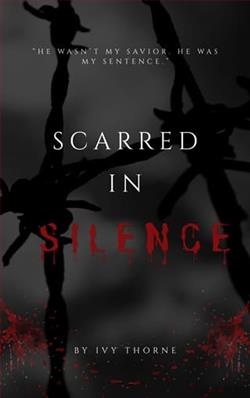Page 13 of The Children of Eve
V:Is this where you tell me again that I ought not to have done it?
B:No, this is where I tell you again that you should have come to me before, not after.
V:You’re jumping at shadows.
B:If a shadow exists, I want to know what cast it.
V:[UI]
B:Okay, but someone will have been sent to recover them. He’ll want them back.
V:They’re not his. They never were.
B:I suspect you and he may differ on that.
end of 031124_0638_pm BERN_Phone_Call.wav
CHAPTERXI
Howie’s Pub stood almost in the shadow of Tukey’s Bridge, a structure connecting Portland’s East End—which, confusingly for people from away, seemed at least as much north as east—with the south part of East Deering via Back Cove. Tukey’s Bridge was named after an eighteenth-century Portland toll collector and tavern owner named Lemuel Tukey, who’d continued to levy tolls even after they’d officially been abolished, an act unlikely to have endeared him to many of his fellow citizens. His name endured, though, which said much about Mainers’ capacity either to forget a grudge or to nurture one.
Howie’s wasn’t fancy. It was a dive bar, and proud of it, but served better pizza than a stranger had any right to expect and fresh whoopie pies for those who, having settled on a steady diet of pizza and beer, felt that abstemiousness in any further form was pretty much pointless. But Zetta Nadeau was not of that stripe. She might have enjoyed the ambience of Howie’s, but if she’d ever ingested any of its food, or much food at all, she’d done so only thanks to the particulate nature of smells. Without flowing fabric to conceal her angularity, she was so thin that, had I gripped her waist in my hands, my fingers would have come close to touching. Mind you, I would have been lying on my back by then, wondering what had hit me. Zetta might not have had much meat onher, but what was strapped to her bones was all muscle. A lot of it was currently on display thanks to a seasonally unwise black crop top and a pair of denim shorts that, if discarded and found later, might have been mistaken for an adolescent’s. Except for her neck and face, her visible skin was covered in tattoos. Given her paucity of flesh, I could only guess how much getting them done had hurt.
Because Zetta was so thin, and had endured the upbringing of nightmares, she looked older than thirty. After being transferred from foster home to foster home for much of her early childhood, and enduring occasional disastrous reunions with her birth parents, she had finally come under the care of a late-middle-aged couple named the Scovells, who were capable of offering her the patience and kindness she required. Zetta remained with them until she was almost nineteen, by which point she had won a full tuition scholarship to the Maine College of Art & Design. The Scovells, who had no children of their own and had never fostered before, were as pleased and proud as if they had tended Zetta since she was an egg in the womb. Then, in a freakish piece of bad fortune, the Scovells’ little Honda Fit was annihilated by a swerving semi on I-495 just a few days before Zetta was due to start college. That was as close as Zetta came to breaking—finally, fatally. But she didn’t. Two days after the funeral, she showed up at MECA&D. Whatever her pain, she hid it well.
Meanwhile, her nominal parents continued to consume valuable oxygen, which, as with the accident that killed the Scovells, was enough to make one wonder if God was paying as much attention to human affairs as He should have been. Ammon, Zetta’s birth father, and her mother, Jerusha, had both served time on various charges relating to the mistreatment of their only daughter early in life, from endangering the welfare of a child to domestic violence. Ammon and Jerusha had been together since their early teens and looked set to remain that way until death finally parted them, courts, imprisonment, and estrangement from their daughter having served only to bring them closer. Theycurrently lived on the outskirts of Anson, Maine, a small city with lousy employment rates, where nearly a third of the population subsisted below the poverty line and many of the rest were walking it. Ammon and Jerusha were failed people but kept themselves to themselves and rarely troubled Zetta, except when their landlord threatened to evict them for nonpayment of rent, which happened about once every year or so. Then Ammon would come crawling to Zetta, cash would change hands, and a life absent of any more meaningful interaction would resume.
From what Zetta had told me, her mother regarded her as a traitor to the family, a child whose whining had brought the police down on her progenitors, causing them to be incarcerated for no crime worse than imposing necessary discipline on an unruly child. But then Jerusha had always been hard on Zetta, claiming that the girl had stolen her beauty and ruined her insides. Whether Jerusha had ever actually been beautiful, I couldn’t say; if so, it was long before I knew her and was true no more. As for Ammon, he had always struck me as a craven entity, a crooked, stunted tree eclipsed by his wife, their poisons transferring back and forth between them and their union thriving on the resulting infusions.
But we have to be wary of the judgments we pass on others. Much of my knowledge of Zetta’s parents was gleaned from what she had shared with me in passing over the years, combined with the mentions of Ammon and Jerusha in local arrest reports and whatever gossip filtered through from my dealings with law enforcement. What I learned might have colored my view of them. I wouldn’t have been human otherwise.
Yet on the night of the launch of Zetta’s first solo exhibition in Portland, at the now vanished June Fitzpatrick Gallery, I was driving along Congress shortly before midnight when I noticed a figure peering into the well-lit space. It was Ammon Nadeau, trying to glimpse as muchof his daughter’s work as he could. I can remember pulling over on the opposite side to watch him. I thought he might be tempted to hurl a brick through the glass, but no, his curiosity about Zetta’s art—and, I believe, his pride in it—was genuine. He remained there for a while before drifting into the shadows, head low, lost in reflection.
In theory, Ammon could have visited the exhibition during the day and nobody would have commented on his presence, unless Zetta had posted pictures of her parents with an exhortation to have them escorted from the premises should they show their faces. In practice, I doubted Ammon had ever set foot in an art gallery and probably feared being ejected based on his demeanor alone. But I suspect he also feared meeting his daughter on her territory, and the awkwardness and hostility that might result from the encounter. It was interesting, too, that he had gone to the gallery alone. Of his wife there was no sign. I sometimes considered sharing with Zetta what I had seen that night, but always decided against it in the end. If her father had wanted her to know, he’d have told her, and the breach between them would not be healed by my account of a troubled man mired in regret.
Now here was Zetta, perched like a stork on her barstool, a gin and tonic by her right hand, a bandage on her left, the latter the result of a disagreement with a steel edge in her studio, or so she claimed. I didn’t question the story. For the moment, I was here to listen, because just ten days after the opening of Zetta’s show at the Triton Gallery, Wyatt Riggins had dropped off the map.
“You hadn’t been seeing him for long, if I remember right,” I said.
“Two months, give or take,” she replied, “but I was as happy as I’d ever been in a relationship. I thought Wyatt felt the same way. It was good, or so I believed. I still believe it, or I wouldn’t be talking to you now.”
Before our meeting, she had sent me a series of pictures of her and Riggins together, selfies for the most part. As at the gallery, I thought they complemented each other, in appearance if nothing else.
“I checked him out, obviously,” said Zetta, “before we got too serious.”
“You mean you googled him?”
“Yeah. I didn’t hire someone to investigate him. I’m wary, but I’m not paranoid.”
“And what did you find?”
“Not a lot.”
“Meaning?”
“Less than I might have expected. Wyatt didn’t leave many footprints.”
“That didn’t worry you?”















